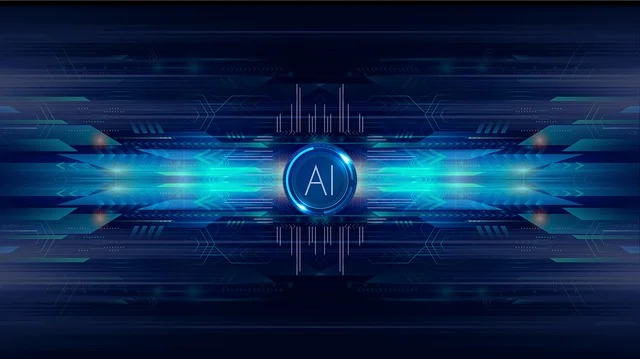Table of Contents
This comprehensive exploration delves into the intricacies, applications, challenges, and ethical considerations of AI, which is revolutionizing various sectors.
1. The Genesis of Artificial Intelligence
Artificial intelligence (AI) has its roots in classical philosophers&8217; descriptions of human thinking as a symbolic system. Its modern concept emerged in the mid-20th century with the work of British mathematician Alan Turing, who questioned if machines could think. This led to the term &8220;Artificial Intelligence&8221; being coined in 1956 by John McCarthy. Despite AI winters, the relentless pursuit of intelligent machines continues, resulting in significant breakthroughs.
2. Machine Learning and Deep Learning: The Pillars of AI
Machine learning and deep learning are key components of modern artificial intelligence. Machine learning uses algorithms to improve through experience, derived from large data sets, to make predictions or decisions. Deep learning, a refinement of AI, uses artificial neural networks to model complex data representations, revolutionizing fields like image recognition, natural language processing, and autonomous driving. DL algorithms achieve human-level performance in some tasks.
3. Real-world Applications: Transforming Industries
Artificial intelligence is not confined to theoretical constructs; it is actively transforming myriad industries. In healthcare, AI-driven diagnostic tools are augmenting the capabilities of medical professionals, leading to earlier and more accurate detection of conditions such as cancer and heart disease. In finance, AI algorithms are optimizing trading strategies and enhancing fraud detection, reducing financial risks. The automotive industry is witnessing a revolution with AI-enabled autonomous vehicles promising safer and more efficient transportation. Customer service has also seen significant enhancements with AI-powered chatbots providing 24/7 assistance and personalized interactions. These applications represent just the tip of the iceberg; virtually every sector stands to benefit from the integration of AI technologies, heralding a new era of efficiency and innovation.
4. Ethical Considerations and Challenges
Despite its transformative potential, artificial intelligence raises several ethical concerns and challenges. One significant issue is the bias in AI algorithms, which can lead to unfair treatment of certain groups. This bias often stems from the data used to train these algorithms, reflecting existing societal prejudices. Another concern is the lack of transparency in AI decision-making processes, often referred to as the &8220;black box&8221; problem, where even the developers cannot fully explain how specific decisions are made. Additionally, the rapid deployment of AI systems raises fears about job displacement and economic inequality, as automation could render certain skill sets obsolete. Addressing these ethical considerations requires a concerted effort involving regulators, developers, and society at large to ensure that AI advancements benefit all of humanity while minimizing potential harms.
5. Reinforcement Learning: Mimicking Human Learning
Reinforcement learning (RL) stands out as a compelling subset of machine learning that mimics the way humans learn through trial and error. In RL, an agent interacts with its environment and learns optimal behaviors by receiving rewards or penalties based on its actions. This approach has seen remarkable success in fields such as robotics, where RL algorithms enable robots to perform complex tasks like walking, grasping objects, or even playing sophisticated games like chess and Go at superhuman levels. The flexibility of reinforcement learning lies in its ability to adapt to dynamic environments without requiring extensive pre-programmed knowledge. By continually learning from interactions, RL systems can achieve remarkable feats of autonomy and performance, pushing the boundaries of what is possible in artificial intelligence.
6. AI and the Future of Work
The integration of artificial intelligence into the workforce is poised to drastically reshape the nature of work. While AI has the potential to automate repetitive and mundane tasks, it also opens up new opportunities for job creation in tech-driven fields. Roles such as data scientists, AI ethicists, and machine learning engineers are in increasing demand. However, the transition may not be seamless, as workers in affected industries will require reskilling and upskilling to adapt to the new landscape. Governments, educational institutions, and private enterprises must collaborate to ensure a balanced and inclusive approach to workforce transformation. By proactively addressing these challenges, society can harness AI&8217;s potential to create more meaningful and fulfilling employment opportunities.
7. The Road Ahead: Future Prospects of AI
Looking ahead, the future prospects of artificial intelligence are boundlessly promising but also fraught with uncertainty. Advances in quantum computing, for instance, could exponentially accelerate AI development, enabling new applications and solving complex problems that are currently intractable. Additionally, the continued evolution of AI towards general artificial intelligence (AGI), where machines can perform any intellectual task that a human can, holds transformative potential unparalleled by any previous technological advancement. However, this journey is riddled with challenges, from ensuring ethical oversight to maintaining human control over omnipotent AI systems. The key to unlocking AI&8217;s future lies in striking a harmonious balance between innovation and regulation, fostering an environment where AI can thrive while aligning with the broader values and aspirations of humanity.
